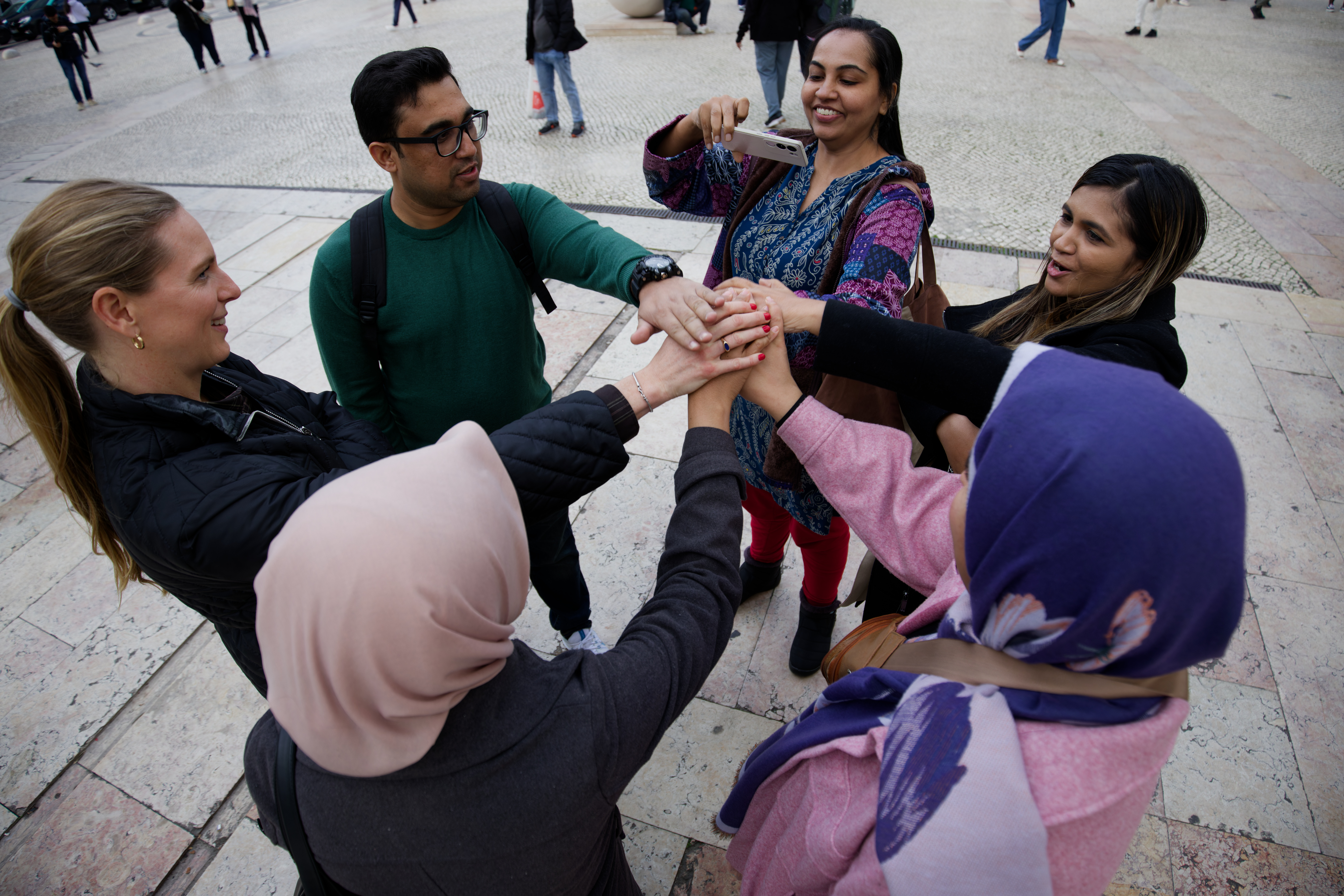Together with our partners and stakeholders, KAICIID impacts some of the furthest and toughest corners of the world with the transformative power of interreligious and intercultural dialogue. But we know that we cannot do this alone.
We recognise that fostering sustainable peace in today's interconnected world requires collaboration and collective action across all sectors and levels. Our partnerships are built on the understanding that to put an end to conflict and crisis, and to build peaceful, cohesive communities, there is a need to pool our resources, build a common vision and serve together.
We are committed to the principles outlined in the UN Charter, supporting the UN efforts and initiatives to promote interreligious dialogue and intercultural understanding. Aligning closely with the UN Sustainable Development Goals (SDGs), particularly those focused on peace, justice and strong institutions.
To that end, we have fostered longstanding and formalised cooperation, including through Memoranda of Understanding (MoU) with over a dozen organizations and institutions.
Our partners range from religious institutions and faith-based organizations, to UN entities, governments, non-governmental and grassroots organizations and academic institutions.
Through grants and technical support, we collaborate with stakeholders on smaller-scale initiatives and ad-hoc projects that target local needs and realities to further amplify the impact of our work. In our institutional cooperations, we bring expertise in engaging faith-based organizations through dialogue processes.
In this context, KAICIID is proud to be represented at the Advisory Group of The Network for Religious and Traditional Peacemakers, is an active member of the Multi-Faith Advisory Council to the UN Inter-Agency Task Force on Religion and Sustainable Development and co-chair of its Gender Working Group. As part of the membership at the International Partnership on Religion and Sustainable Development (PaRD). KAICIID is contributing to PaRD’s Steering Board, being one of the three co-chairs, and is active in several workstreams, including as co-lead of the SDG16 (Peace, Justice, and Strong Institutions) as well as the Gender Equality and Empowerment Workstreams. Our engagement in these platforms allows us to impact global dialogue and advocate for policies that address interreligious and intercultural issues at the highest levels.
By working hand-in-hand with faith communities, intergovernmental organizations, academic institutions, and grassroots leaders, we are creating a future where understanding, respect, and collaboration is the basis of interreligious and intercultural interactions.
